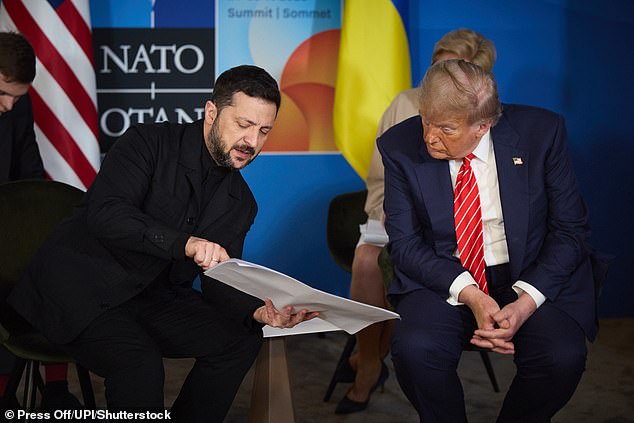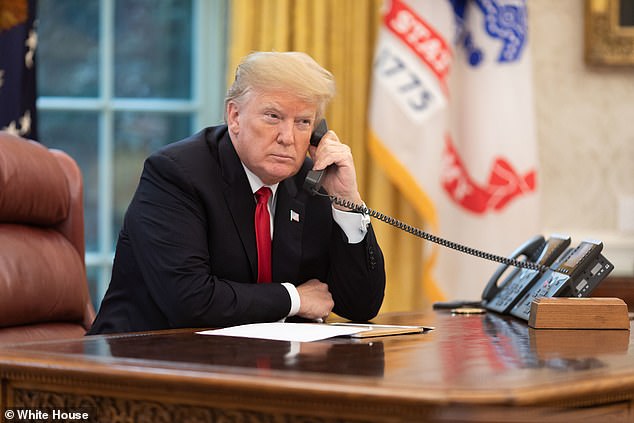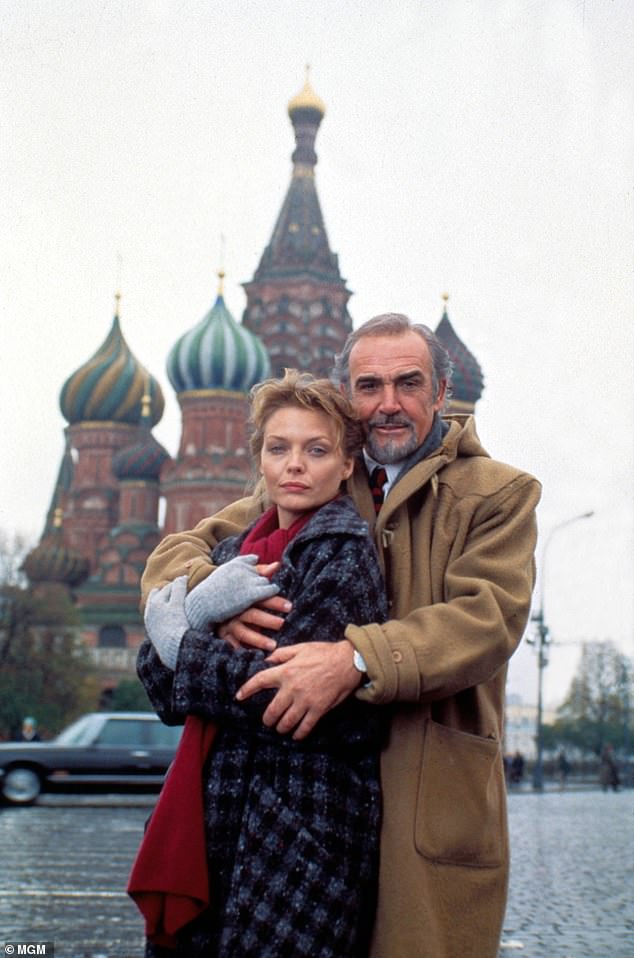President Trump is not a normal politician. The world is now wandering in a bleak and frightening danger zone.
On July 4, in a phone call with Ukraine’s President Zelensky, Mr Trump asked: ‘Volodymyr, can you hit Moscow? Can you hit St Petersburg too?’
Mr Zelensky replied: ‘Absolutely. We can if you give us the weapons.’
This is not quite true, by the way. Ukraine could not hit Moscow with US missiles at the time, unless it also had the help of US troops and experts. If this thing happened, Russia would view it as an American (and Nato) attack on Moscow. I do not know where that would end. It would be better not to start it.
Should we be afraid that it might happen? It is reasonable.
Mr Trump has flattened or broken many of the restraints which normally keep US presidents from becoming despots or global megalomaniacs. Almost everyone who ought to stand up to him is now afraid of him.
He veers crazily from one policy to another, and the fact that we have now been told that the plan to bomb Moscow is off does not comfort me.
Mr Trump grows keener on war every day. He could, if he wished, have stopped Israel bombing Tehran. He could, if he wished, halt the nightmare Israeli war in Gaza.

Donald Trump talks to Ukrainian president Volodymyr Zelensky at the Nato summit in The Hague last month

On July 4, in a phone call with Mr Zelensky, the US President asked: ‘Volodymyr, can you hit Moscow? Can you hit St Petersburg too?’
He must know that his stealth bombing of Iran failed in its main aim. Iran still has a nuclear programme, so he will soon have to decide whether to do it again.
This is all so stupid. Anyone who was really concerned about Ukraine and its people would be trying to end the war, not to expand it. Darkness is closing in on President Zelensky. Ukraine has suffered appalling casualties, still secret. The country is entangled in corruption scandals even greater than normal.
Mr Zelensky’s political opponents are increasingly being silenced by lawless methods, sanctions and security purges. Media criticism is strangled. Millions have left the country. Millions more are refugees within it. The economy is a ruin and living standards fall as inflation rises.
Press gangs roam the streets, seizing young men and bundling them off to army service. Many then desert.
I’m not going over all this again, except to defy liars by pointing out that I condemned the Russian invasion from the start and still do. What I also said was that Ukraine was being used by others, who did not care about the country or its people.
They turned it into a battering ram, so they could have a war with Russia without actually fighting themselves.
I rather think events have proved my point.
The last thing we need now is to pour petrol on the glowing embers of the stupidest war in modern history.
Sean’s Soviet thriller tells us so much

Michelle Pfeiffer and Sean Connery stand in Moscow’s Red Square in the 1990 film The Russia House
Last week I finally managed to see the 1990 film The Russia House, starring Sean Connery and Michelle Pfeiffer in a thriller set in Moscow. I missed it at the time because I was living in Moscow and it was not, I think, shown there then.
But its accurate evocation of the Russian capital in that gloomy, exciting era made me gasp. So did its plot – a Soviet atomic scientist reveals its nuclear programme is a decrepit shambles. The KGB obligingly confirms the story by killing him. The CIA angrily rejects the information because it is unwelcome to powerful interests who want to spend more on arms.
Fanciful? Well, this appeared in The New York Times of March 30, 1998: ‘The end of the Cold War has shrunk the arms industry and forced it to diversify. But expansion of the North Atlantic Treaty Organisation – first to Poland, Hungary and the Czech Republic, then possibly to more than a dozen other countries – would offer arms makers a new and hugely lucrative market. America’s six biggest military contractors have spent $51million on lobbying in the last two years.’
That would now be worth $100million. They must have expected big contracts in return. It explains a lot.
A rapid route to disaster
Picture a pretty footpath by a river, peace and summer sun. And then a raucous clattering noise not far off – the engine of a motorbike, not allowed in such a place.
I jumped aside before it turned the corner, in time to see the machine – stripped of its number plates – being ridden fast and dangerously by three frightening, young hooded men.
One was masked, the others smirked as they defiled the quiet, secluded place for which they had no use.
In many years I have not seen such a thing on that path.
I am sure that it is a side effect of the Government’s crazy liberation of electric motorbikes, fast, heavy, requiring neither numberplates nor driving licences.
Bad people now know they can do this, and nothing will happen to them.
The story was heartbreaking. The woman who told it to me – middle-aged, shabby but respectable, an unshed tear in one eye – was convincing.
‘My elderly mother is dying in a nursing home in X [a city 100 miles away]. I have no money for the fare. Please help me.’
I didn’t believe a word of it – but what if it was true? I gave her some money anyway.
Then, before I was even out of sight, I saw her hurry across the road to a large, scowling and expensively dressed young man who treated her as if she was, in some way, in his power.
And she gave him my money, before fastening her glittering eye on another victim. I wonder how many she needed.
Oddly, this has not put me off giving to beggars, just reminded me of how savage humanity can be.
Of course votes at 16 will make for a more easily manipulated, more gullible electorate. But excuse me a moment. Labour said it was going to introduce this, quite clearly, in its manifesto last year. Yet millions of grown-up voters used their ballots to help Labour into power, directly or indirectly. They’re in no position to sneer at 16-year-olds for being too immature, impulsive and easily led to be allowed to vote.












